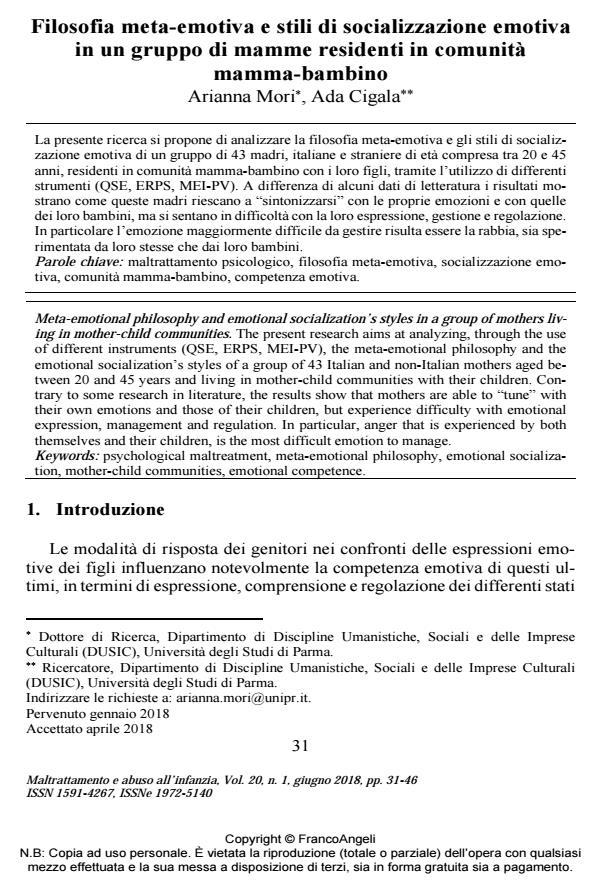Meta-emotional philosophy and emotional socialization’s styles in a group of mothers living in mother-child communities
Journal title MALTRATTAMENTO E ABUSO ALL’INFANZIA
Author/s Arianna Mori, Ada Cigala
Publishing Year 2018 Issue 2018/2
Language Italian Pages 16 P. 31-46 File size 207 KB
DOI 10.3280/MAL2018-002003
DOI is like a bar code for intellectual property: to have more infomation
click here
Below, you can see the article first page
If you want to buy this article in PDF format, you can do it, following the instructions to buy download credits

FrancoAngeli is member of Publishers International Linking Association, Inc (PILA), a not-for-profit association which run the CrossRef service enabling links to and from online scholarly content.
The present research aims at analyzing, through the use of different instruments (QSE, ERPS, MEI-PV), the meta-emotional philosophy and the emotional socialization’s styles of a group of 43 Italian and non-Italian mothers aged between 20 and 45 years and living in mother-child communities with their children. Contrary to some research in literature, the results show that mothers are able to"tune" with their own emotions and those of their children, but experience difficulty with emotional expression, management and regulation. In particular, anger that is experienced by both themselves and their children, is the most difficult emotion to manage.
Keywords: Psychological maltreatment, meta-emotional philosophy, emotional socialization, mother-child communities, emotional competence
Arianna Mori, Ada Cigala, Filosofia meta-emotiva e stili di socializzazione emotiva in un gruppo di mamme residenti in comunità mamma-bambino in "MALTRATTAMENTO E ABUSO ALL’INFANZIA" 2/2018, pp 31-46, DOI: 10.3280/MAL2018-002003